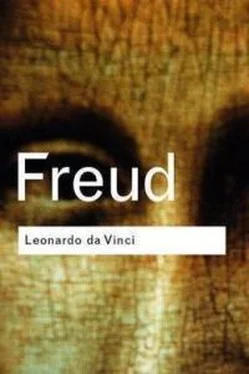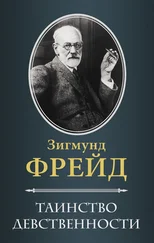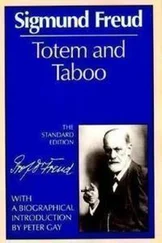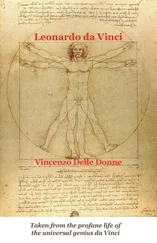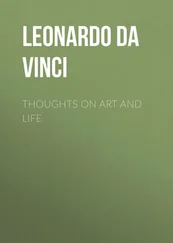In mentioning the concurrence in Leonardo of the powerful investigation impulse with the stunting of his sexual life which was limited to the so–called ideal homosexuality, we feel inclined to consider him as a model example of our third type. The most essential point of his character and the secret of it seems to lie in the fact, that after utilizing the infantile activity of curiosity in the service of sexual interest he was able to sublimate the greater part of his libido into the impulse of investigation. But to be sure the proof of this conception is not easy to produce. To do this we would have to have an insight into the psychic development of his first childhood years, and it seems foolish to hope for such material when the reports concerning his life are so meager and so uncertain; and moreover, when we deal with information which even persons of our own generation withdraw from the attention of the observer.
We know very little concerning Leonardo's youth. He was born in 1452 in the little city of Vinci between Florence and Empoli; he was an illegitimate child which was surely not considered a great popular stain in that time. His father was Ser Piero da Vinci, a notary and descendant of notaries and farmers, who took their name from the place Vinci; his mother, a certain Caterina, probably a peasant girl, who later married another native of Vinci. Nothing else about his mother appears in the life history of Leonardo, only the writer Merejkowski believed to have found some traces of her. The only definite information about Leonardo's childhood is furnished by a legal document from the year 1457, a register of assessment in which Vinci Leonardo is mentioned among the members of the family as a five–year–old illegitimate child of Ser Piero. [24] Scognamiglio 1. c., p. 15.
As the marriage of Ser Piero with Donna Albiera remained childless the little Leonardo could be brought up in his father's house. He did not leave this house until he entered as apprentice—it is not known what year—in the studio of Andrea del Verrocchio. In 1472 Leonardo's name could already be found in the register of the members of the "Compagnia dei Pittori." That is all.
As far as I know Leonardo only once interspersed in his scientific descriptions a communication from his childhood. In a passage where he speaks about the flight of the vulture, he suddenly interrupts himself in order to follow up a memory from very early years which came to his mind.
" It seems that it had been destined before that I should occupy myself so thoroughly with the vulture, for it comes to my mind as a very early memory, when I was still in the cradle, a vulture came down to me, he opened my mouth with his tail and struck me a few times with his tail against my lips. " [25] Cited by Scognamiglio from the Codex Atlanticus, p. 65.
We have here an infantile memory and to be sure of the strangest sort. It is strange on account of its content and account of the time of life in which it was fixed. That a person could retain a memory of the nursing period is perhaps not impossible, but it can in no way be taken as certain. But what this memory of Leonardo states, namely, that a vulture opened the child's mouth with its tail, sounds so improbable, so fabulous, that another conception which puts an end to the two difficulties with one stroke appeals much more to our judgment. The scene of the vulture is not a memory of Leonardo, but a phantasy which he formed later, and transferred into his childhood. The childhood memories of persons often have no different origin, as a matter of fact, they are not fixated from an experience like the conscious memories from the time of maturity and then repeated, but they are not produced until a later period when childhood is already past, they are then changed and disguised and put in the service of later tendencies, so that in general they cannot be strictly differentiated from phantasies. Their nature will perhaps be best understood by recalling the manner in which history writing originated among ancient nations. As long as the nation was small and weak it gave no thought to the writing of its history, it tilled the soil of its land, defended its existence against its neighbors by seeking to wrest land from them and endeavored to become rich. It was a heroic but unhistoric time. Then came another age, a period of self–realization in which one felt rich and powerful, and it was then that one experienced the need to discover whence one originated and how one developed. The history–writing which then continues to register the present events throws also its backward glance to the past, it gathers traditions and legends, it interprets what survived from olden times into customs and uses, and thus creates a history of past ages. It is quite natural that this history of the past ages is more the expressions of opinions and desires of the present than a faithful picture of the past, for many a thing escaped the people's memory, other things became distorted, some trace of the past was misunderstood and interpreted in the sense of the present; and besides one does not write history through motives of objective curiosity, but because one desires to impress his contemporaries, to stimulate and extol them, or to hold the mirror before them. The conscious memory of a person concerning the experiences of his maturity may now be fully compared to that of history writing, and his infantile memories, as far as their origin and reliability are concerned will actually correspond to the history of the primitive period of a people which was compiled later with purposive intent.
Now one may think that if Leonardo's story of the vulture which visited him in his cradle is only a phantasy of later birth, it is hardly worth while giving more time to it. One could easily explain it by his openly avowed inclination to occupy himself with the problem of the flight of the bird which would lend to this phantasy an air of predetermined fate. But with this depreciation one commits as great an injustice as if one would simply ignore the material of legends, traditions, and interpretations in the primitive history of a people. Notwithstanding all distortions and misunderstandings to the contrary they still represent the reality of the past; they represent what the people formed out of the experiences of its past age under the domination of once powerful and to–day still effective motives, and if these distortions could be unraveled through the knowledge of all effective forces, one would surely discover the historic truth under this legendary material. The same holds true for the infantile reminiscences or for the phantasies of individuals. What a person thinks he recalls from his childhood, is not of an indifferent nature. As a rule the memory remnants, which he himself does not understand, conceal invaluable evidences of the most important features of his psychic development. As the psychoanalytic technique affords us excellent means for bringing to light this concealed material, we shall venture the attempt to fill the gaps in the history of Leonardo's life through the analysis of his infantile phantasy. And if we should not attain a satisfactory degree of certainty, we will have to console ourselves with the fact that so many other investigations about this great and mysterious man have met no better fate.
When we examine Leonardo's vulture–phantasy with the eyes of a psychoanalyst then it does not seem strange very long; we recall that we have often found similar structures in dreams, so that we may venture to translate this phantasy from its strange language into words that are universally understood. The translation then follows an erotic direction. Tail, "coda," is one of the most familiar symbols, as well as a substitutive designation of the male member which is no less true in Italian than in other languages. The situation contained in the phantasy, that a vulture opened the mouth of the child and forcefully belabored it with its tail, corresponds to the idea of fellatio, a sexual act in which the member is placed into the mouth of the other person. Strangely enough this phantasy is altogether of a passive character; it resembles certain dreams and phantasies of women and of passive homosexuals who play the feminine part in sexual relations.
Читать дальше
